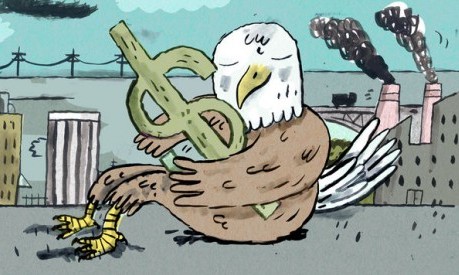he top four most important economic issues cited by Americans today are the lack of jobs (26%), the budget deficit (17%), the rising cost of health care (18%), and the increasing gap between the rich and poor (15%). About 1-in-10 say that social security (9%) or the rising costs of education (9%) is the country’s most important economic problem.
While roughly one-quarter of Republicans (26%) and Democrats (25%) say the lack of jobs is America’s most important economic problem, Republicans and Democrats strongly differ in their views of the importance of the budget deficit (31% vs. 7% most important) and the increasing gap between the rich and the poor (6% vs. 21% most important).
Americans are generally pessimistic about upward economic mobility. Nearly half (47%) of Americans believe that their generation is worse off financially than their parents’ generation, compared to 16% who believe their generation is doing about the same, and 36% who believe they are better off than their parents’ generation.
The Silent Generation (ages 66-88) is the only generation in which a majority (59%) believe they are better off than their parents’ generation. Only one-quarter (26%) of the Silent Generation believe their generation is worse off than their parents’ generation. Baby Boomers (ages 49-67) are divided (45% worse off vs. 40% better off). Majorities of younger Americans in Generation X (ages 34-48) (51%) and Millennials (ages 18-33) (58%) believe they are worse off than their parents’ generation.
A majority (54%) of Americans agree that hard work and determination are no guarantee of success for most people, while 45% disagree.
There are substantial divisions by income level. Nearly 6-in-10 (59%) Americans with household incomes under $30,000 a year believe hard work and determination are no guarantee of success, a view held by less than half (48%) of Americans with household incomes in excess of $100,000 a year.
Less than one-third of Americans believe the federal government is either generally working (7%) or working with some major problems (24%). Roughly two-thirds say the federal government is broken but working in some areas (40%) or completely broken (26%). Continue reading
Sources
Additional readingNews category: Features.




